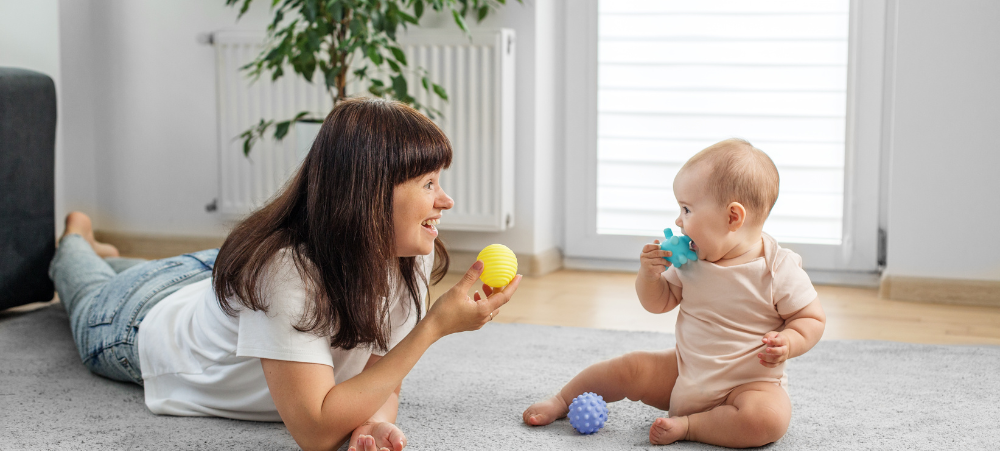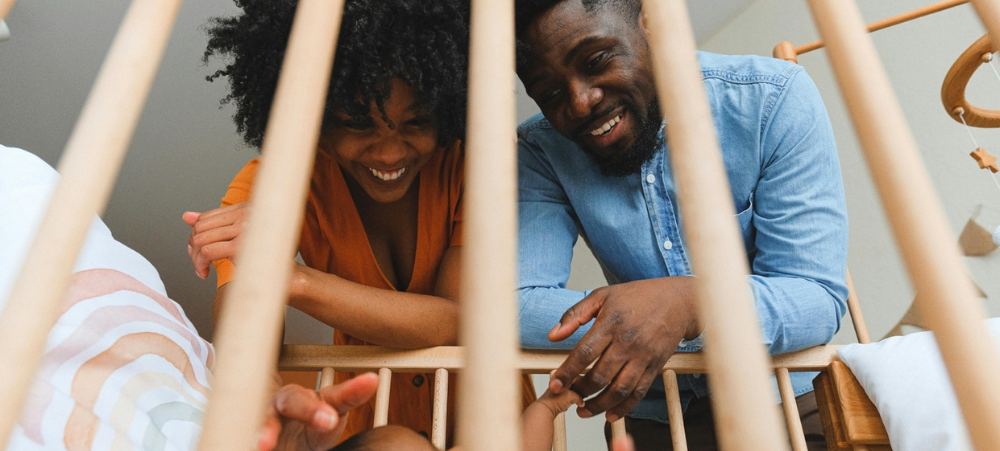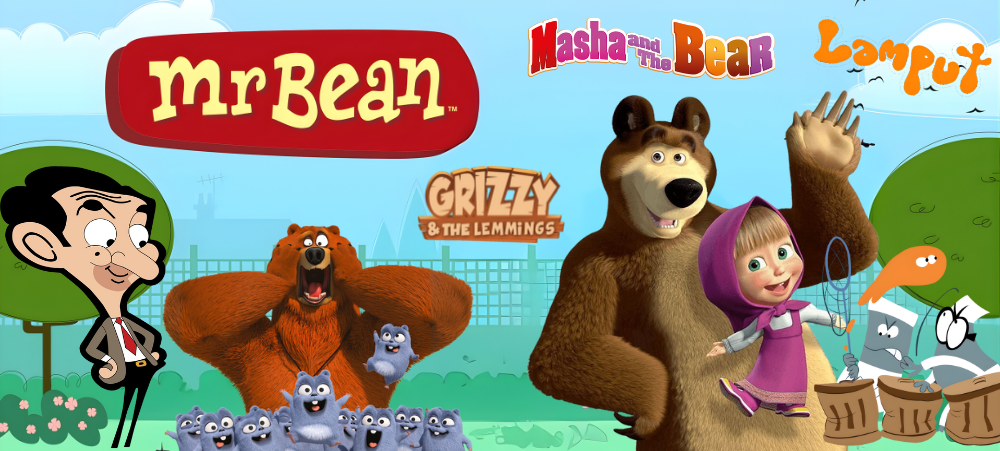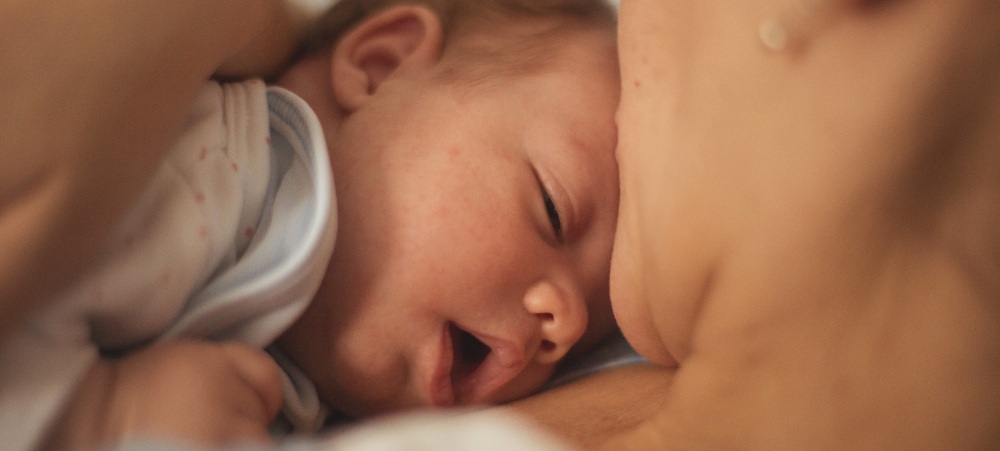
Making Play Meaningful: Simple Ways to Connect and Support Your Baby’s Development Through Everyday Moments
Picture this: the kettle is boiling, your baby is wriggling on the mat, and you start humming a tune without thinking. They look up, catch your eye, and smile. In that tiny moment, something extraordinary is happening inside their brain. What’s happening in that shared glance is pure brain magic. When your baby locks eyes with you and responds to your tune, their brain is busy wiring up networks for language, emotional regulation, and social connection. The rhythm of your voice activates their auditory and emotional centres, while the shared gaze triggers the “social brain” – regions like the prefrontal cortex and temporal areas that help us understand and respond to others. At the same time, tiny bursts of oxytocin (the bonding hormone) strengthen feelings of safety and connection. These repeated micro-moments literally shape how their brain grows – laying the foundations for communication, trust, and learning later on. So that simple sing-song moment isn’t small at all; it’s brain-building in action. The most powerful developmental tools aren’t found in expensive toys or perfectly planned sensory activities. They’re tucked into your daily routines — the nappy changes, the kitchen chats, the songs you hum in the car. As a neurodevelopmental paediatrician, I see it every day: everyday moments build extraordinary children, if they are deliberate and consistent. Its similar to “focusses” on the working muscle group in the gym. Setting an intention for an interaction rather than mindlessly rolling through routines makes all the difference. And with little ones it’s so easy – you just to switch on your awareness. Why Everyday Moments Matter From birth, your baby’s brain is making millions of new connections every second. These connections strengthen through repeated, emotionally warm experiences. When you respond to your baby’s gaze, mirror their coos, or share a laugh, you’re not just bonding – you’re laying down the neural architecture for everything that follows. These early interactions shape circuits for social connection, language, sensory processing, and self-regulation. They form the brain’s blueprint for how to love, learn, and engage with the world. The Four Developmental Domains Play is not a single skill – it’s the intersection of multiple areas of development. Understanding these domains helps parents notice growth in the everyday. Turning the Ordinary into Extraordinary 1. Talk Your Day Your voice is your baby’s favourite sound. Narrate what you’re doing in a warm, rhythmic tone. “I’m opening the cupboard. Here’s the red cup!” This simple running commentary builds vocabulary and helps your baby make sense of their world. 2. Pause and Wait After a sound, expression, or gesture — stop. Give your baby a beat to respond with a coo, a smile, a gaze. These back-and-forth forms the foundation of conversation. The pause is where the magic happens. 3. Everyday Objects are the Best Toys A spoon becomes a drumstick. A box, a racing car. A towel, a game of peek‑a‑boo. When you follow your baby’s curiosity, you’re sparking problem‑solving, motor skills, and creativity – no batteries required. 4. Engage All the Senses Let your baby feel warm water, smell cinnamon, watch leaves dance in the wind. These safe, predictable sensory adventures teach the brain how to organise information – a critical skill for emotional regulation and attention later on. 5. Routines as Rituals Bedtime, feeding, getting dressed – these can become emotional anchors. A little rhyme, a predictable song, the same gentle sequence each time. Repetition isn’t boring for a baby – it’s how their brain wires for security and learning. When to Play: Natural Windows You don’t need hour‑long sessions or complicated setups. The magic is in short, meaningful bursts sprinkled through the day: Two or three minutes of attuned, joyful interaction repeated throughout the day creates a powerful cumulative effect. Connection Over Perfection Babies don’t need flashcards. They need you. Your face, your voice, your presence. Some days will be messy. You’ll be tired. You’ll miss moments. That’s okay, and it’s the most appropriate developmental mirror for your little one. Through your normal range of emotions, your child will learn to be comfortable with the full spectrum of what it means to be human. What matters is the overall pattern of warmth and responsiveness, even when we are not our best selves. Regulated variability keeps babies interested. Take-Home Tips In Summary Every cuddle, glance, song, and playful moment is sculpting your baby’s brain. When play is woven into daily life, it becomes effortless, and profoundly impactful. You don’t have to do more. You just have to be present.







